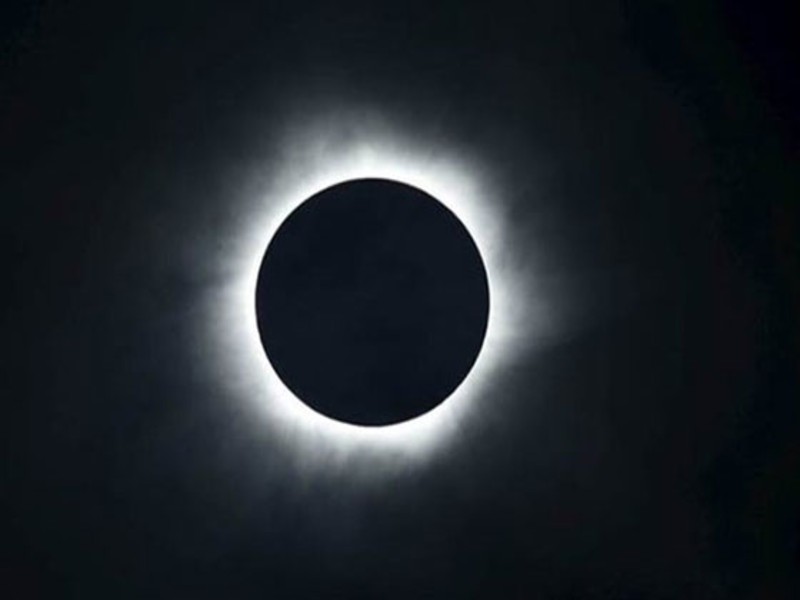Lunar Eclipse: Introduction
As the celestial calendar unfolds, marking significant astronomical events, Chandra Grahan 2024 aligns with the vibrant festival of Holi in India. This convergence of celestial and cultural phenomena invites sky-watchers to witness the mesmerizing dance of light and shadow. Let’s explore the timings and implications of this captivating lunar eclipse across various cities.
The Chandra Grahan and Holi Festivities
The onset of 2024 brings forth the first Chandra Grahan on March 25, coinciding with the colorful celebrations of Holi in India. While the penumbral eclipse is set to grace the skies, spanning 4 hours and 39 minutes, it regrettably remains concealed from the gaze of observers within the country.

Timings Across India and Beyond
Commencing at 10:23 am on Monday morning, the penumbral eclipse will unfold its mystique, captivating viewers across North and South America. However, the spectacle eludes the eyes of those residing in India, casting a shadow of intrigue and anticipation.
Religious Observances Amidst Celestial Wonders
Despite the eclipse’s invisibility to the Indian populace, there are no religious constraints hindering customary practices. Temples will welcome devotees with open doors, unaffected by the astronomical occurrence. However, traditional beliefs caution against initiating auspicious endeavors during the preceding suntak period, a nine-hour duration preceding the eclipse.
Understanding the Lunar Eclipse Phenomenon
A Chandra Grahan transpires when the moon traverses through Earth’s shadow, imparting a temporary dimness upon its luminous surface. Such occurrences, characterized by their fleeting nature, grace the skies twice a year. During a penumbral eclipse, the moon experiences the subtle caress of Earth’s outer shadow, known as the penumbra. As per insights from Space.com, the forthcoming eclipse will extend for 4 hours and 39 minutes, culminating at 3:02 pm.
Insights from NASA
According to a NASA blog excerpt, the penumbral eclipse manifests as the full moon ascends on the late evening of March 24, transitioning into the early hours of March 25. This subtle interplay of light and shadow, termed as a penumbral eclipse, offers a celestial spectacle worth beholding.
Beyond the Lunar Eclipse: Anticipation for the Total Solar Eclipse
The lunar eclipse heralds the arrival of a total solar eclipse on April 8, just weeks away. This extraordinary phenomenon unfolds as the moon interposes between the sun and Earth, enveloping the terrestrial realm in shadow. The convergence of these celestial marvels invites contemplation and awe, transcending temporal and cultural boundaries.
Read more – Rare Celestial Event: Total Solar Eclipse of 2024 on April 8
Holi: More Than a Festival of Colors
As Holi adorns the calendar on March 25, it commemorates not only the triumph of good over evil but also symbolizes the eternal love shared between Radha and Krishna. Preceded by the ritualistic Holika Dahan, the festival exudes joy, camaraderie, and spiritual renewal, echoing the timeless traditions of Braj in Uttar Pradesh.
As the celestial symphony unfolds, let us embrace the convergence of cultural heritage and cosmic marvels, finding solace and inspiration in the boundless expanse of the universe.
Read also – Holi 2024: Date, Holika Dahan Muhurat, and Puja Procedure
FAQs: Understanding the Holi Lunar Eclipse of 2024
What is a lunar eclipse?
A lunar eclipse occurs when the Earth passes between the sun and the moon, casting its shadow on the lunar surface, causing it to appear dimmer or change color.
When will the Holi lunar eclipse of 2024 occur?
The Holi lunar eclipse of 2024 will take place on March 25, coinciding with the festival of colors celebrated in India.
Where will the lunar eclipse be visible?
The penumbral lunar eclipse will be visible across North and South America, but unfortunately not in India.
How long will the lunar eclipse last?
The penumbral lunar eclipse of 2024 will last for approximately 4 hours and 39 minutes, starting at 10:23 am.
Is there any religious significance associated with the lunar eclipse?
While there are no religious restrictions during the eclipse in India, traditional beliefs advise against initiating auspicious activities during the preceding suntak period.
Discover more from KHOJ DARPAN
Subscribe to get the latest posts sent to your email.




